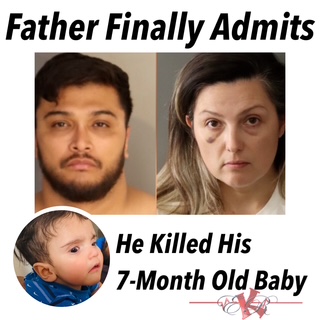The tragic case of 7-month-old Emmanuel Haro has left a community reeling in grief and outrage. What began as an Amber Alert for a missing infant quickly turned into a criminal investigation pointing directly at the child’s parents. August 27, 2025, Emmanuel’s father, Jake Haro, confessed to killing his son while speaking with an undercover inmate. This shocking admission not only exposes years of abuse but also raises serious questions about how the system allowed such a preventable tragedy to unfold.
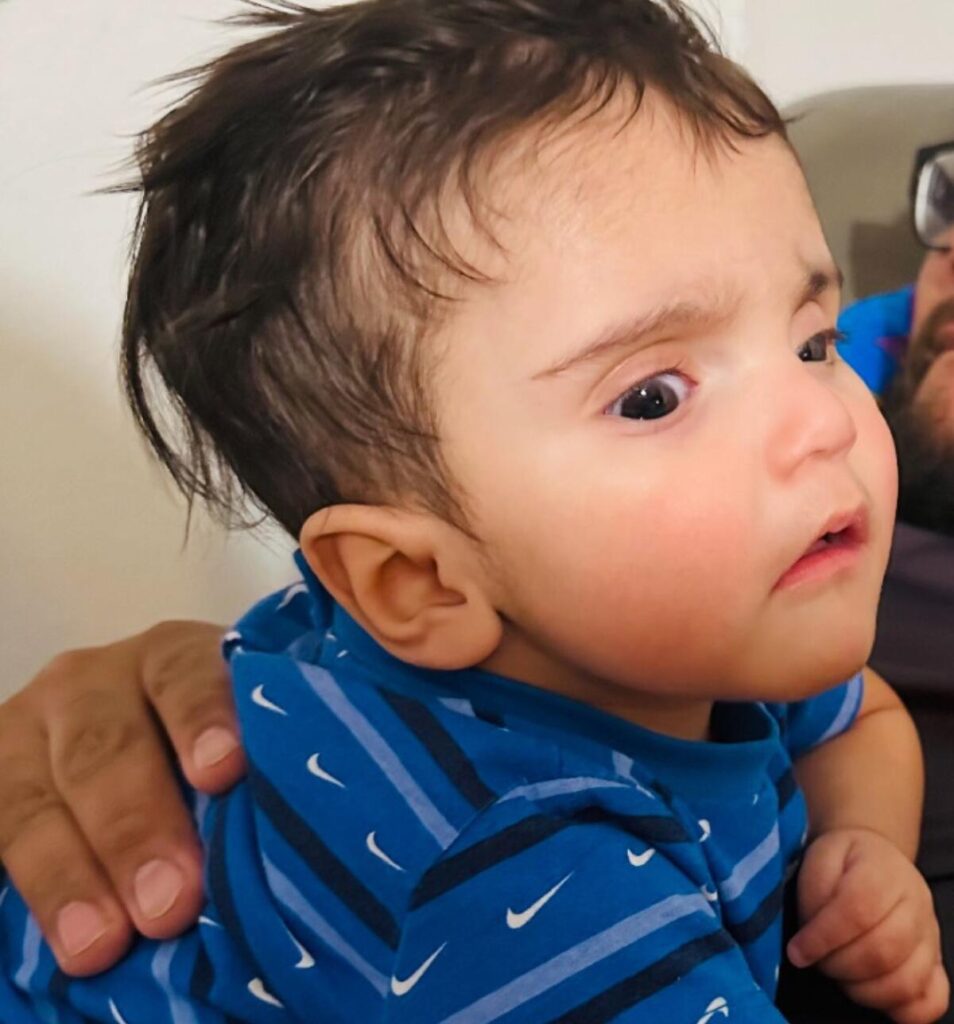
The Disappearance of Baby Emmanuel
On August 14, 2025, Emmanuel’s mother, Rebecca Haro, called police to report that her son had been abducted while she was outside a sporting-goods store in San Bernardino. According to her account, a stranger had taken Emmanuel during a diaper change. Authorities swiftly launched an Amber Alert, mobilizing resources and the public in hopes of finding the baby safe.
But almost immediately, inconsistencies began to surface. Investigators discovered that on the very same day, a child-abuse report had been filed against the Haros, tied to their home in Moreno Valley. As detectives pressed further, the story of abduction began to unravel.
Social media detectives immediately began to look into the story and what the mother claimed to happen, and the conclusion was that something “fishy” definitely happened to baby Emmanuel Haro.
Murder Charges and the Father’s Confession
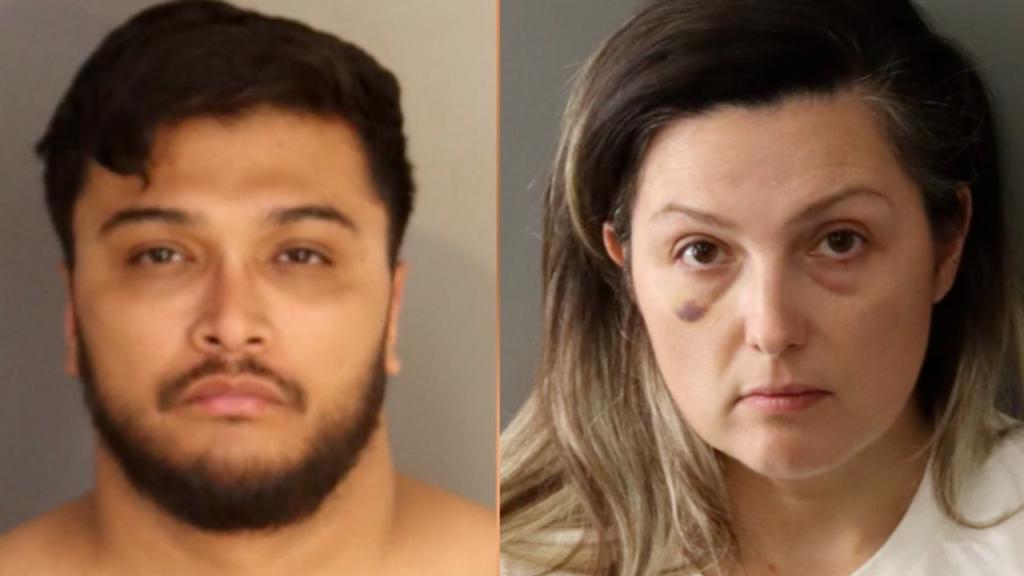
Within days, prosecutors charged both Jake and Rebecca Haro with murder and filing a false police report. While both parents initially maintained their innocence, their narrative collapsed when Jake was recorded by an undercover inmate confessing to the crime.
According to the New York Post, he admitted that Emmanuel had died in his care. At times, Jake claimed the baby suffocated accidentally while sleeping with him. In other moments, he admitted to intentionally disposing of Emmanuel’s body, either in a trash bin or by burying him near a freeway. Authorities have since been combing through remote areas in Moreno Valley in search of the infant’s remains.
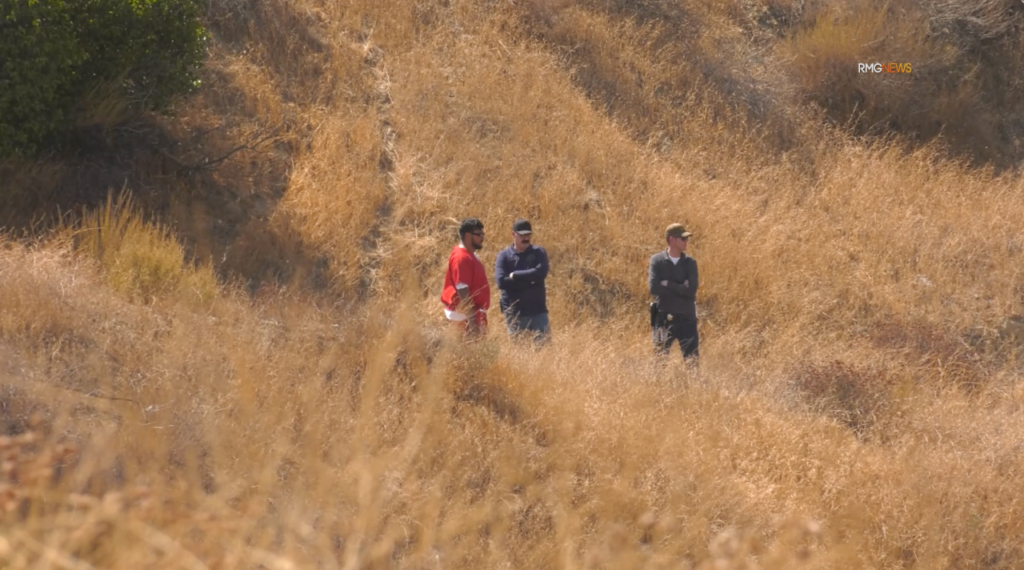
A History of Violence and Abuse
This confession wasn’t an isolated act—it followed a disturbing pattern of abuse. In 2023, Jake Haro was convicted of child abuse after brutally injuring his young daughter. The attack left her with permanent injuries. Despite the seriousness of the case, Jake did not serve any prison time. Instead, he received a lenient sentence that prosecutors now call a gross failure of justice.
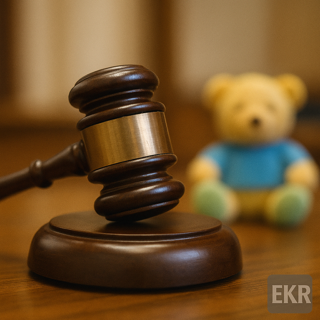
Riverside County District Attorney Michael Hestrin expressed outrage, saying:
“This man should have been behind bars. The fact that he wasn’t directly led to the death of Emmanuel.”
A lot of times people are depressed and battling with deep rooted issues and all the signs are missed. >>Click here to learn about the signs of depression.
The case highlights how dangerous gaps in the system—light sentencing, poor follow-up on child abuse reports, and lack of accountability—can have devastating consequences.
The Role of Child Protective Services (CPS)
Community members and child-advocacy groups are now asking: How could CPS miss the warning signs?
- Multiple child-abuse complaints had reportedly been filed against the Haros.
- Emmanuel himself showed signs of prolonged physical abuse.
- Neighbors described troubling incidents, but interventions were limited.
Advocates argue that CPS was already stretched thin with overwhelming caseloads and limited staff. Still, Emmanuel’s case underscores the urgent need for stronger child-protection protocols—ones that prioritize safety over bureaucracy.
The Community Reacts
The news of Emmanuel’s death has sent shockwaves throughout Riverside County and beyond. Candlelight vigils have been held, with community members gathering to pray, grieve, and demand justice for baby Emmanuel Haro. Many are calling for harsher penalties for repeat child abusers, as well as stricter oversight of abuse cases.
On social media, hashtags like #JusticeForEmmanuel and #ProtectOurChildren have trended, with thousands expressing sorrow and anger. Community leaders stress that Emmanuel’s death must not be in vain—it must lead to reform.
Both Jake and Rebecca Haro now face serious charges, including first-degree murder, child abuse, and filing false reports. If convicted, they could spend the rest of their lives in prison. Prosecutors have made clear that they intend to pursue the harshest possible penalties.
At the same time, Emmanuel’s case may become a catalyst for legal reform, sparking debate over:
Emmanuel’s story is not just about one family’s tragedy—it is about a system that repeatedly failed to act. From the courts to child-protection services, numerous warning signs were ignored. The result was the loss of a young life that could have been spared.
This case reminds us that justice is not only about punishing offenders but also about preventing harm before it happens. Communities, lawmakers, and agencies must work together to close the gaps that allowed Emmanuel’s suffering to continue unchecked.
Honoring Emmanuel’s Short Life

Though Emmanuel’s life was tragically cut short, his story has ignited an important conversation. Advocates say that honoring him means fighting for stronger protections for all children—so no other child has to endure the same fate.
Community groups have organized memorials, and some are pushing for laws to be named in Emmanuel’s honor, ensuring his legacy will fuel change.
The confession of Jake Haro to killing his son Emmanuel is heartbreaking, but it is also a call to action. This case shines a spotlight on child abuse, systemic failures, and the urgent need for reform.
Emmanuel’s story must not be forgotten. It must serve as a reminder to all of us—lawmakers, communities, and families—that protecting children is a responsibility we cannot take lightly.
Justice for Emmanuel means not only accountability for his parents but also long-overdue changes in how society handles child abuse.









